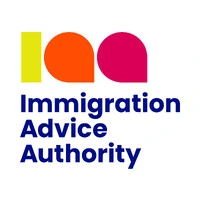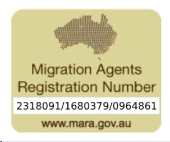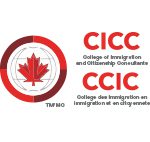The CEC continues to be one of the fastest immigration streams in 2025, with dedicated draws and favourable opportunities for skilled workers already contributing to Canada’s workforce.
The Canadian Experience Class (CEC) is one of the three main programs under Canada’s Express Entry system, designed for skilled workers who already have Canadian work experience. It allows temporary foreign workers and international graduates to transition more easily to permanent residency by recognizing their contribution to Canada’s labour market.
Applicants must have at least one year of skilled work experience in Canada within the last three years, meet the required language proficiency levels, and be admissible to Canada. Successful candidates enter the Express Entry pool, where they are ranked under the Comprehensive Ranking System (CRS). Those with competitive scores are invited to apply for permanent residency through regular IRCC draws.
This program provides a fast-track pathway to Canadian permanent residency, with most complete applications processed in around 6 months, according to IRCC.
To qualify under the Canadian Experience Class (CEC), applicants must meet specific requirements set by Immigration, Refugees and Citizenship Canada (IRCC). These criteria ensure that candidates have relevant Canadian work experience and the ability to integrate successfully as permanent residents.
- TEER 0 or 1 jobs: Canadian Language Benchmark (CLB 7)
- TEER 2 or 3 jobs: Canadian Language Benchmark (CLB 5)
Note: These criteria are central to ensuring that CEC applicants can successfully transition from temporary status to permanent residency.
Not all Canadian work experience qualifies for the Canadian Experience Class (CEC). According to IRCC, only specific types of skilled, authorized employment can be considered. Applicants must carefully review what is eligible to ensure they meet the program’s requirements.
Work experience that counts includes:
Note: This ensures that only genuine, skilled Canadian work experience is recognized, strengthening the program’s focus on long-term economic integration.
Step 1: Check Eligibility
Confirm that you meet the minimum requirements for CEC, including skilled Canadian work experience, language proficiency, and admissibility.
Step 2: Create an Express Entry Profile
Set up an online profile with Immigration, Refugees and Citizenship Canada (IRCC). Your profile will include details such as work history, education, and language test results.
Step 3: Enter the CRS Pool
Once eligible, you will be placed into the Comprehensive Ranking System (CRS) pool, where you earn points for factors like Canadian work experience, language ability, age, and education.
Step 4: Receive an Invitation to Apply (ITA)
If your CRS score meets the cut-off in a CEC or all-program draw, you will receive an Invitation to Apply for permanent residency.
Step 5: Submit Your PR Application
After receiving an ITA, you have 60 days to submit a complete application with all supporting documents to IRCC.
Step 6: Application Processing
IRCC processes most complete CEC applications in around 6 months, after which successful candidates are granted Canadian permanent residency.
Under the Comprehensive Ranking System (CRS), Canadian work experience is one of the most valuable factors for Express Entry candidates applying through the Canadian Experience Class (CEC). IRCC awards additional points for skilled Canadian work, as well as combinations with education and language ability.
How Canadian experience impacts CRS points:
Note: This system rewards applicants who have already proven their ability to integrate into Canada’s labour market, giving them a strong advantage in receiving an Invitation to Apply (ITA).
Applicants under the Canadian Experience Class (CEC) must pay standard Express Entry fees set by Immigration, Refugees and Citizenship Canada (IRCC). These fees cover both the application processing and the Right of Permanent Residence Fee (RPRF).
| Applicant Type | Fee (CAD) |
| Principal Applicant (includes RPRF) | $1,365 |
| Spouse or Partner | $1,365 |
| Dependent Child (per child) | $230 |
| Biometrics (per person) | $85 |
| Biometrics (family, 2 or more) | $170 |
Notes
The Canadian Experience Class (CEC) is processed through the Express Entry system, which has one of the fastest timelines among Canadian immigration programs. According to IRCC, most complete applications under Express Entry, including CEC, are finalized in about 6 months from the date a full application is submitted after receiving an Invitation to Apply (ITA).
Actual processing times may vary depending on factors such as application volume, completeness of documents, and individual background checks (medical, security, or police clearances). Applicants can check the latest published processing times directly on IRCC’s official portal for the most up-to-date estimates.
While the Canadian Experience Class recognizes skilled Canadian work experience, certain types of work are not eligible. According to IRCC, applicants should be aware of the following exclusions and limitations:
Note: These restrictions ensure that only legitimate, skilled, and authorized Canadian work experience is considered under the program.
Y-Axis, the leading overseas immigration consultancy in the UK, provides unbiased immigration services for every client based on their interests and requirements. The impeccable services of Y-Axis include:
Our Accreditations | |||
 |  |  |  |
Explore what Global Indians have to say about Y-Axis in shaping their future
Canada Dependent Visa
Urvashi Sharma got Permanent Resident Vi
Read More...
Canada Work Permit Visa
Varun provided us with great Y-Axis Revi
Read More...
Canada Work Permit Visa
Y-Axis received excellent feedback from
Read More...
The Canadian Experience Class (CEC) is an immigration pathway under Canada’s Express Entry system. It is specifically designed for skilled workers who already have Canadian work experience and wish to become permanent residents. The program recognizes that those who have lived and worked in Canada have already adapted to the culture, labour market, and lifestyle, making their transition to permanent settlement smoother. To qualify, applicants must have gained eligible skilled work experience in Canada, meet language proficiency requirements, and show their intention to live outside Quebec, which manages its own immigration programs.
To qualify for the Canadian Experience Class, applicants must have at least one year of full-time skilled work experience, or the equivalent in part-time, within the last three years before applying. This totals to a minimum of 1,560 hours. The work must fall under Canada’s National Occupational Classification (NOC) TEER categories 0, 1, 2, or 3. Importantly, the experience must be paid and legally authorized. Work performed as unpaid internships, volunteer work, or co-op placements while studying full-time does not count towards eligibility. The experience must also be gained while holding valid temporary resident status in Canada.
Language ability is an essential part of eligibility for the Canadian Experience Class. Applicants must take an approved English or French language test and achieve minimum scores depending on their occupation. For work experience in TEER 0 or TEER 1 jobs, the minimum required level is Canadian Language Benchmark (CLB) 7 in all four skills—reading, writing, speaking, and listening. For work experience in TEER 2 or TEER 3 jobs, the minimum is CLB 5 across all abilities. These test results must be valid on the date of application, and higher scores can improve ranking under Express Entry.
Yes, Canadian work experience gained in Quebec can count toward eligibility for the Canadian Experience Class. However, applicants must intend to settle in a province or territory outside Quebec. This is because Quebec manages its own immigration programs independently from the federal government. If you plan to make Quebec your permanent home, you would need to apply through one of Quebec’s specific immigration programs. But if your goal is to live elsewhere in Canada, Quebec work experience can be used to meet the one-year skilled work requirement under CEC.
Canadian work experience is highly valued in the Comprehensive Ranking System (CRS) used for Express Entry. Having one or more years of eligible work experience in Canada adds direct points in the core human capital section of the CRS. In addition, it boosts points in the skill transferability section when combined with strong language test scores or higher education. The more Canadian work experience you have (up to certain limits), the more points you earn, making you more competitive in Express Entry draws. Essentially, Canadian experience increases both your direct and indirect chances of selection.
The typical processing time for Canadian Experience Class applications submitted through Express Entry is about six months from the date a complete application is received by immigration authorities. This timeline is considered a standard benchmark, though actual processing may vary depending on factors such as the number of applications in the system, the completeness of your documentation, background verification, and medical results. While many applicants see decisions within six months, some cases may take longer if additional information is required. Applicants can monitor their status online after submission for updates.
The Canadian Experience Class (CEC) is an Express Entry immigration stream for temporary foreign workers and international students who have gained at least one year of skilled work experience in Canada. It works as a pathway for skilled professionals with Canadian work experience to obtain permanent residency, allowing them to continue their careers, settle with their families, and integrate into Canada’s workforce, usually through the faster Express Entry system.
To qualify for the Canadian Experience Class (CEC) program, you must meet these requirements:
The processing time for a Canadian Experience Class (CEC) application is usually about 6 months once you submit a complete application through the Express Entry system. This timeline is faster than many other immigration programs because CEC applicants already have Canadian work experience, which makes them highly adaptable to the local labor market. However, processing can vary slightly depending on factors like document verification, background checks, and the completeness of the application.
Applying for permanent residence through the Canadian Experience Class (CEC) under the Express Entry system involves several costs.
Here's a breakdown of the cost associated:
| Cost Type | Amount (CAD) | Purpose |
| Government Fees | 1,525 | Processing fee (950) + Right of PR fee (575) |
| Biometrics | 85 | Mandatory for all applicants |
| Medical Examination | 450 | Approximate cost per adult |
| Police Clearance Certificate | 100 | Approx. per country |
| Educational Credential Assessment (ECA) | 200 | Required for foreign education verification |
| Language Test | 300 | IELTS / CELPIP (English) or TEF (French) |
| Optional Professional Fees | 4,000–5,500 | If hiring an immigration consultant/lawyer |
The Canadian Experience Class (CEC) and the Federal Skilled Worker Program (FSWP) are both Express Entry pathways, but they target different applicants. CEC is designed for foreign workers or international graduates who already have skilled work experience in Canada (NOC 0, A, or B) within the last three years, making it easier to earn CRS points for Canadian experience. Federal Skilled Worker Program (FSWP), on the other hand, is for skilled professionals with work experience from anywhere in the world, requiring minimum education and language proficiency. While both programs process applications in about six months, CEC is ideal for those already in Canada, and FSWP suits applicants abroad.